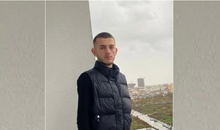
 Flash News
Flash News
Suspected of being murdered, photo emerges of 23-year-old found dead in Shkopet lake
Theth action, resident in tears: I built on my land with my life's expenses, the state should not destroy it
Directors targeted! After Fier and Durrës, Rama arrives in Elbasan
Name/Identification of the 23-year-old found dead near Shkopet Lake
IKM action in Theth, residents come out in protest
German elections/ Scholz and Merz face off for the first time in a television debate
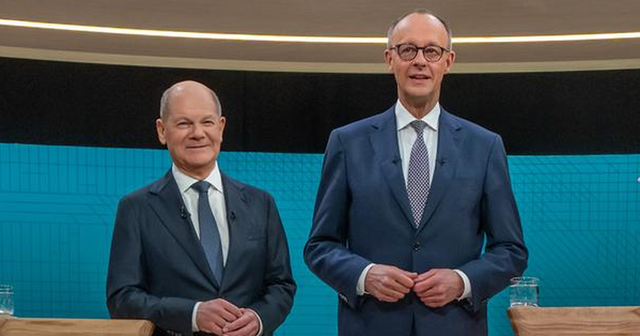
Christian Democratic Party chancellor candidate Friedrich Merz faced Social Democratic Chancellor Olaf Scholz, who is running for a second term, in a televised election debate this Sunday.
Both politicians, Christian Democrat Friedrich Merz and the current Chancellor, Social Democrat Olaf Scholz, unveiled the concepts of their parties' programs, focusing on the most prominent topics of the electoral campaign for the early parliamentary elections on February 23, 2025: Migration, economy, fiscal policies, climate, social reforms, foreign policy.
Closing statements of the television debate
At the end of the debate, each of the rivals had the right to express himself with the closing sentence, which for Merz was the declaration that: " We have a plan for this country. We have a lot of confidence in the capacities of this country. I am confident that I can lead a good and successful government in Germany."
While Scholz stated: "A government that ensures that Germany advances and is stable can only be achieved with a vote for the Social Democrats."
What does Merz think about possible governing coalitions?
Merz hopes that the Christian Democrats/Christian Social Union will win the parliamentary elections. He wants to govern with just one coalition partner. Merz sees the AfD as a serious threat to Germany. Voter support for the party has doubled in the last legislative term. Scholz has tried to pursue a left-wing policy with the environmentalist Green Party, Merz said. There is no longer a majority for this policy in Germany. Anyone who wants to govern with the conservative Union will have to move towards "center" politics, especially on the issues of migration and the economy.
What stance should be taken towards Trump? "Clear words and friendly talks"
What is the right strategy in relation to US President Donald Trump? Clear words and friendly talks, says Scholz. That's what I have done so far, he notes, and emphasizes that it is important to preserve transatlantic relations.
Merz says he has been calling for months that we must be prepared for President Trump. Regarding the tariff dispute, we must give a strong response and negotiate as equals.
Should Ukraine be admitted to NATO?
The US rejects this, says Scholz. It is important to ensure that Ukraine is not attacked again. Scholz also stressed that he does not like it when Ukraine is told that it must give up parts of its territory. Merz also says that Ukraine cannot currently join NATO. Meanwhile, Ukraine has received the status of a candidate country in the EU. There are also solidarity obligations in the EU. The war must end as soon as possible, stressed Merz.
How do the two rivals Scholz and Merz see the problem of the weakening economy in Germany?
Referring to the weakening state of the economy, Merz drew attention to the fact that Germany has entered its third year of recession. There are more company bankruptcies and an increase in the number of unemployed. He accused Scholz of having a wrong perception regarding the urgency of solving the problems.
But Scholz emphasizes that Germany has a good basis for strengthening the economy: "We have the basis to take care of economic growth." Scholz also emphasized that he is not responsible for the reasons for the economic weakness, which is related to the war in Ukraine. " I did not attack Ukraine and I did not cut off gas supplies, it was Putin who did that ," Scholz said.
Merz objected, saying that the war had affected all of Europe. " And why are other countries still on the path to economic growth?" he asked. "Because we had to struggle more with industry and energy prices. That was much more relevant for our economy," Scholz objected.
Merz: Deportations at the border are possible
Merz emphasizes that deportations at Germany's borders for illegal immigrants are possible. "The basic law was changed in 1993 and since then anyone who has entered Germany at the land border has not been able to apply for asylum, even if they have requested it ," Merz said. Other European countries - such as France, Denmark, Sweden - also do not accept people at the border. "Why can't this work here?" asked the CDU candidate for chancellor, Merz.
Scholz for "tough and restrictive course" in asylum policy
Scholz spoke of a "tough and restrictive course" in asylum policy. Meanwhile, the number of asylum applications is at its lowest since 2016. This course of returns and detention until return for those who do not qualify for asylum will continue.
The atmosphere between the two rivals during the television debate
The two rivals in the first television debate were incompatible in their positions. Scholz maintained an offensive stance towards his rival, but at all times remained calm, sticking to his arguments. Merz reacted noticeably calmly to the Chancellor's attacks. He several times addressed Scholz by asking him direct questions. Despite the harshness in the duel from the beginning, there were also conciliatory tones. Merz said that he did not hold any grudge against Scholz, who had once called him "Fritze Merz" at the beginning of the election campaign.
The election debate between the two main rivals, moderated on public television ARD by the well-known moderators Maybrit Illner and Sandra Maischberger, lasted 90 minutes. Each of the rivals had the same amount of time, which was taken care of by the director. This television debate also marks the opening of the final phase of the election campaign, during which so far in the polls the CDU candidate for chancellor Merz is leading with 29 to 34 percent, while Scholz is ranked third with 15 to 18 percent behind the AfD.
In the hall where the televised debate took place, the two rivals were only allowed to have a pencil and a notepad. There were no spectators in the hall. Over the two weeks until February 23, Merz and Scholz will face off in various televised rounds. But next Sunday, February 16, Scholz and Merz will take part in a format that is new to this campaign, a televised round, where the two candidates from other parties, the ecologist Robert Habeck and the AfD leader, Alice Weidel, will also participate./ DW
Latest news

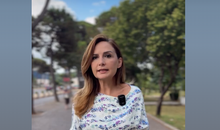
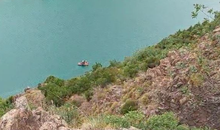
Found dead in Shkopet Lake, 23-year-old has injuries to his throat
2025-07-09 10:41:39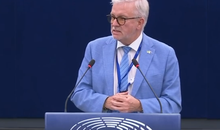
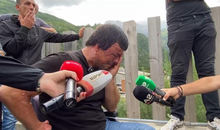
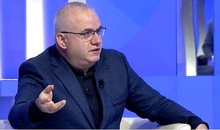
Hoxha: We will have a parliament that will surpass any comedy program!
2025-07-09 10:10:32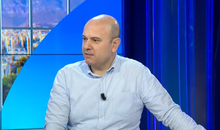
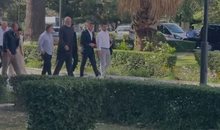
Directors targeted! After Fier and Durrës, Rama arrives in Elbasan
2025-07-09 09:53:57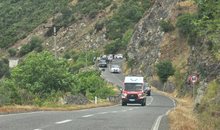
Name/Identification of the 23-year-old found dead near Shkopet Lake
2025-07-09 09:42:34
IKM action in Theth, residents come out in protest
2025-07-09 09:34:54
Reasons why the EU has not imposed new sanctions against Russia
2025-07-09 09:18:35
DW: Online scams increase human trafficking
2025-07-09 09:01:29

Reported missing by his father, 23-year-old found dead near Shkopet lake
2025-07-09 08:42:13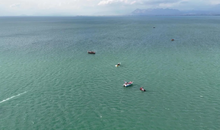
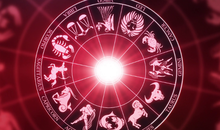
Horoscope, what do the stars have in store for you today?
2025-07-09 08:25:44
Sun and rain, Wednesday with unstable weather
2025-07-09 08:06:58
Posta e mëngjesit/ Me 2 rreshta: Çfarë pati rëndësi dje në Shqipëri
2025-07-09 07:52:02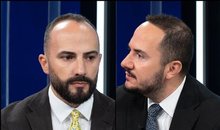
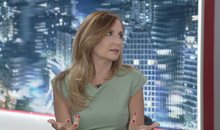
Tabaku: Salianji bore a political cost that no one in Albania has borne
2025-07-08 22:36:15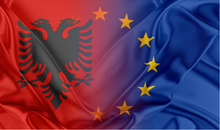
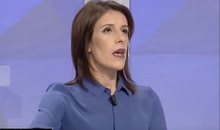

Sekretet për të shijuar verën si një ‘profesionist’
2025-07-08 21:45:06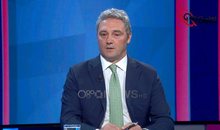

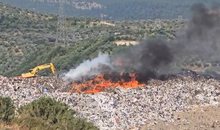
Albania's Waste Crisis: Toxic Smoke and Deep Governance Problems
2025-07-08 21:13:07
Alarming pollution in Fushë-Arrëz, copper factory waste turns the Fan River red
2025-07-08 21:07:14

Poll/ How do you assess the Prime Minister's intervention in local government?
2025-07-08 20:40:01
28 arrested in Italy and Spain for drug trafficking, including an Albanian
2025-07-08 20:24:14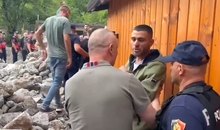
Residents clash with police in Theth: We are on our land
2025-07-08 20:11:41
Death of 27-year-old in Lipjan, Osmani: To be investigated independently!
2025-07-08 20:06:52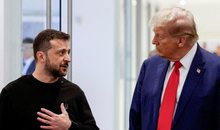
Trump promises US will send more weapons to Ukraine
2025-07-08 19:54:25
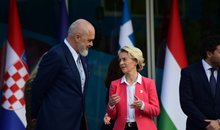
EU targets health, education, police and cadastre as areas of corruption
2025-07-08 19:23:34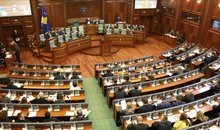
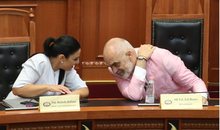
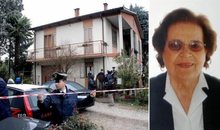
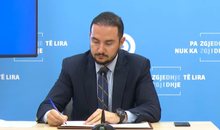
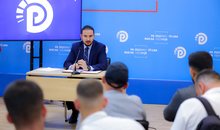
Salianji after his return: I did not oppose for functions, but for vocation
2025-07-08 18:23:15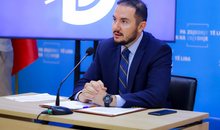
Will he run in the 2029 elections? Here's how Salianji answers
2025-07-08 18:16:09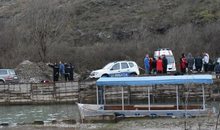
Boat captain drowns after diving into water to save two tourists in Shkodra
2025-07-08 18:05:12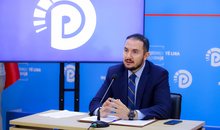
Salianji from the DP headquarters: I brought a drug trafficker to justice
2025-07-08 18:03:26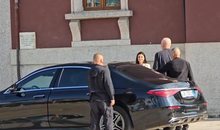
After Fier, Rama "landes" in Durrës, dismissals expected
2025-07-08 17:53:32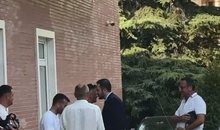
Ervin Salianji arrives at the blue headquarters, welcomed by supporters
2025-07-08 17:45:12
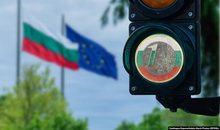
EU approves final steps for Bulgaria's Eurozone membership
2025-07-08 17:43:06
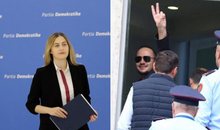
Zhupa after Salianj's release: Inspiration for every opposition member
2025-07-08 17:19:39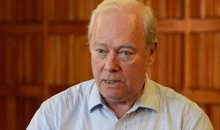
Actor David Killick passes away
2025-07-08 17:09:23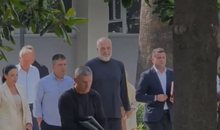
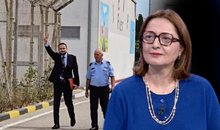

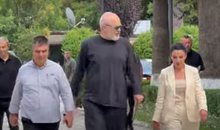
Threatened with dismissals, Rama arrives at the Fier municipality
2025-07-08 16:39:19
Extreme temperatures temporarily close Acropolis in Greece
2025-07-08 16:30:34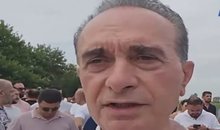

A plot of cannabis is discovered in Mazha, Kruja
2025-07-08 16:13:48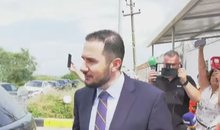
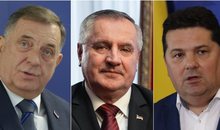
Republika Srpska allocates additional 22 million euros for lobbying in the US
2025-07-08 15:52:04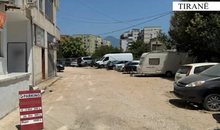

Spices that protect you from mosquitoes!
2025-07-08 15:30:03

Accident on the Vlora-Qeparo axis, one injured
2025-07-08 15:11:52
Berat, 17 years part of UNESCO's world heritage
2025-07-08 15:03:30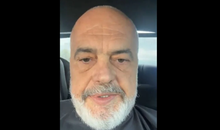
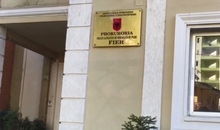

Cost of living increases, inflation rises to 2.4% in June, driven by food
2025-07-08 14:29:54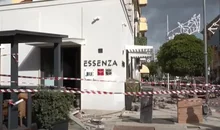
VIDEO/ Restaurant roof collapses in Italy, one victim and ten injured
2025-07-08 14:18:44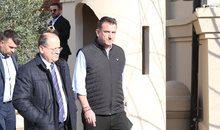
Requested release from cell, Supreme Court leaves Veliaj in prison
2025-07-08 14:07:41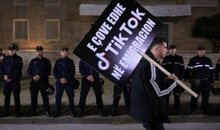
TikTok shutdown/ Austrian media: Rama benefited politically from the app ban
2025-07-08 13:48:25
Acropolis temporarily closed due to heat
2025-07-08 13:31:09
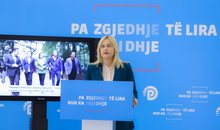
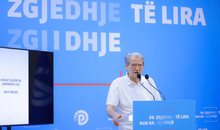
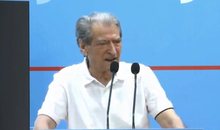
Salianj's release/Berisha: He was politically condemned by Rama and Xhafa!
2025-07-08 13:00:13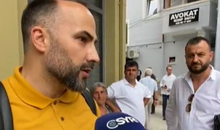

Knife attack on Peshkopia Boulevard
2025-07-08 12:44:10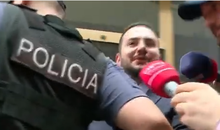
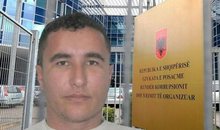
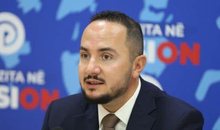
Fier Court decides on the conditional release of Ervin Salianj
2025-07-08 12:15:23
Cost of living increases, inflation rises to 2.4% in June due to food
2025-07-08 12:00:16
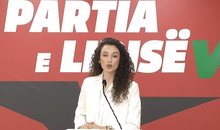

Requesting conditional release, Ervin Salianji arrives at the Fier Court
2025-07-08 11:16:36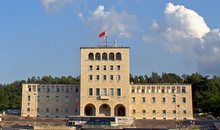
The first phase of university applications begins today
2025-07-08 11:10:52
Fire in Lura, flames endanger the National Park
2025-07-08 10:53:43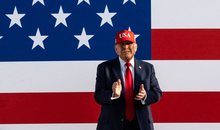
Trump warns of 35% tariffs on Serbia and 30% on Bosnia and Herzegovina
2025-07-08 10:37:32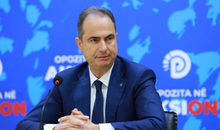
Thethi rooster and the dung cock
2025-07-08 10:24:01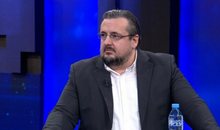

Fire in Dukat endangers Llogara National Park
2025-07-08 10:01:39
International drug search: 36-year-old arrested in Durrës (NAME)
2025-07-08 09:50:48
Thethi, tourists "criticize" modern trend
2025-07-08 09:39:54
Fire on Mount Dukat still active, Llogara National Park at risk
2025-07-08 09:28:12
Veliaj's appeal to be heard today in the High Court
2025-07-08 09:16:02
"Bad sign for democracy"/ Parliament neglects reporting by institutions
2025-07-08 09:04:56
Today's hearing at the Fier Court, Salianji requests conditional release
2025-07-08 08:56:39

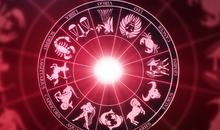
Horoscope, what do the stars have in store for you today?
2025-07-08 08:16:19
